Recent events at the Trent Central Student Association (TCSA) have elicited a conversation about racial discrimination in the student organization.
At the last two Board of Directors’ meetings on March 1 and February 8 there were points raised about prejudice inside the organization and its effects.
In particular, protest of the motion to impeach Vice President of Campaigns and Equity Boykin Smith’s decried the discriminatory nature of TCSA operations and individuals.
The challenge with discussing discrimination is that the forms of prejudice are often forms of “micro-aggressions” that are difficult to pinpoint and base a strong claim off of.
Micro-aggressions are an analytical category for phrases and statements that are a form of unintended discrimination. Micro-aggressions point to a prejudiced world-view that implicitly shapes behaviour.
While the victim of discrimination may feel that something has happened that was prejudicial, the perpetrator might not be fully aware that their actions were taken as discriminatory. This makes it difficult for civil conversations about racial discrimination as the perpetrator might feel like they have done nothing wrong and in turn victimized for being called a racist.
“It is important to note that we’re not saying that they are a racist, but that their acts are racist,” said one former TCSA member in an interview with Arthur. It is difficult to extricate oneself from a prejudicial mindset that is naturalized, but recognition of racist behaviour is part and parcel of improving the environment.
At an institution like the TCSA, it can be especially difficult to identify discrimination and pull apart prejudiced motivations from other issues of personal enmity and political difference, which are so closely intertwined.
It can be hard to differentiate between the various issues, but looking at the types of rhetoric used in conflicts with people of colour, a case can be made for racial discrimination. For instance, calling upon stereotypical attributes as grounds for a complaint.
Members of the TCSA who identify as a minority report that in some instances they suspect that their work was hampered by negative stereotypes and prejudicial attitudes. In terms of how the organization’s power dynamics, certain members feel like their exclusion corresponds along racial lines.
As the purpose of the TCSA is to come to appropriate compromises on political issues with input from student representatives, exclusion from any discussion is reprehensible. Whether that exclusion is intended or not, it is felt by those who should be included.
On top of that, larger project and priorities of the organization reflect a bias against people of colour.
Last year, the TCSA stymied a campaign for Black History/Heritage Month. This campaign was continued outside of the association’s auspices by dedicated individuals, who felt the need for this representation was greater than bureaucratic conflict.
Campaigns directed at representing minorities are often lacking or absent. “The discrimination is evident in what is not seen,” said one former TCSA staff person.
Institutional Racism
To an extent, the TCSA board flushes out and is reconstituted each year with the elections. The attitudes of those involved can be a personal struggle and reflective of individual issues.
However, racism is not solely an individual struggle. It can become embedded within institutions through policy, bureaucracy and a systemic lack of commitment to diversity.
To combat racism at the university and in the student union, the TCSA has a position, called the Anti-Racism Equity Commissioner who is tasked with running campaigns and working to combat racism on campus.
This past year, the commissioner was impeached after two months. Questions were raised about whether this was fair treatment, as there were other commissioners not impeached guilty of similar infractions.
While the TCSA has a formal position for challenging racism, racism is also challenged in the democratic procedure.
Recently, Trent4Israel, a student group founded in January, raised concerns that the TCSA’s policy to Boycott and Divest from the Israeli Apartheid state was an example of institutional oppression. They felt that the policy that targeted Israel as the Jewish homeland was anti-Semitic. This stance made some students feel uncomfortable with the association based on their Jewish identity.
There are, of course, many different types of discrimination that one can experience that are based on identity: gender, sexual orientation, race, religion, ethnicity, disability, neuro-atypicality, and more. It is sometimes argued that inclusion in one marginalized community absolves an individual of a capacity to participate in other forms of oppression.
However, it is important to acknowledge that even minorities can perpetuate oppressive societal structures in other ways.
Anti-oppression Commitments
The Community and Race Relations Committee of Peterborough (CRRC) is an organization devoted to identifying and eliminating racial discrimination in the area. One of their key mechanisms for doing so is in running anti-oppression workshops for businesses, organizations, and for the public.
In an interview with Arthur, CRRC coordinator Cáitlín Currie described the purpose of anti-oppression workshops “to facilitate a consciousness raising and dialogue that can then be continued as these folks organize things through these lenses and work together on organizational projects.”
Anti-oppression is about creating the space for dialogue about these issues and hopefully giving a commitment to organizers to do better.
The above article was written based on interviews with current and former members of the TCSA who did not wish to be named in the article.


.png)


.jpg)


.jpeg)



.jpg)

.jpg)
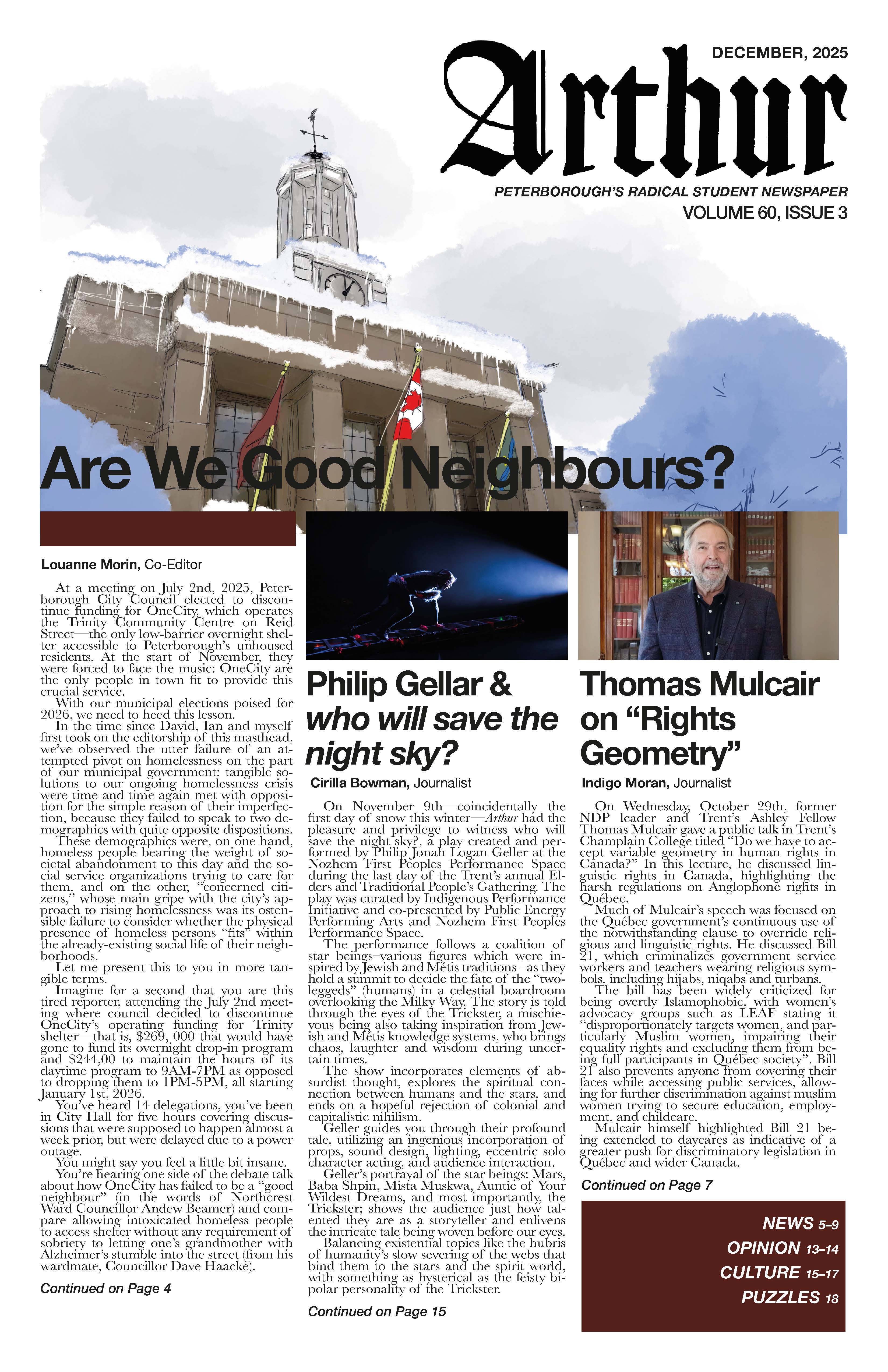
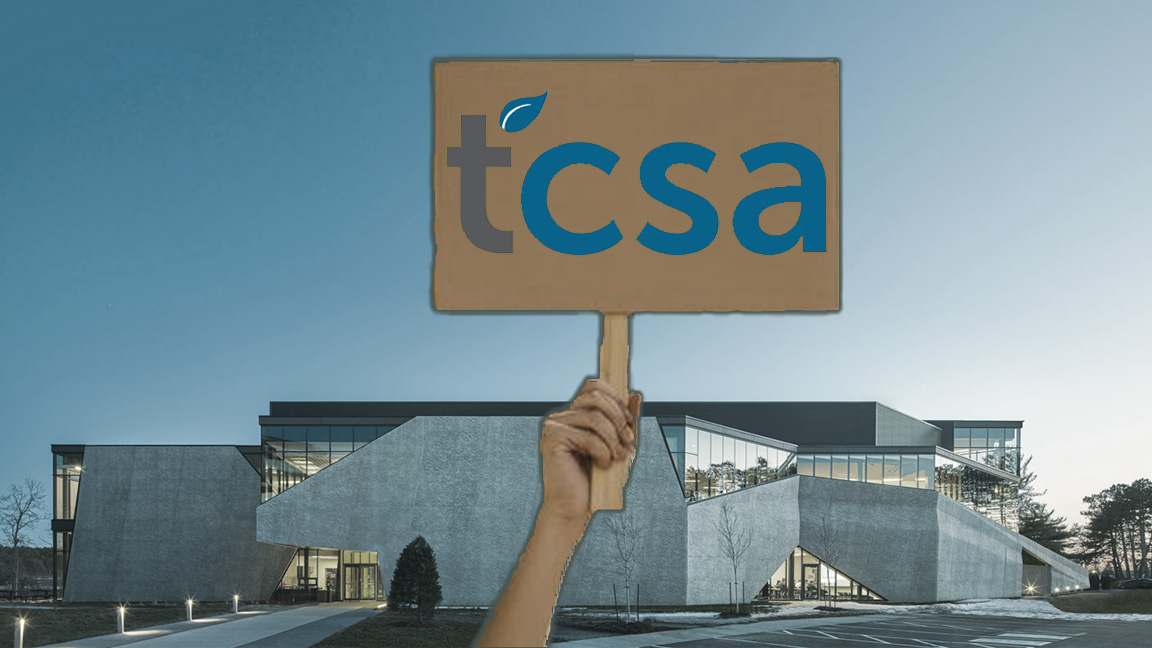

.jpg)

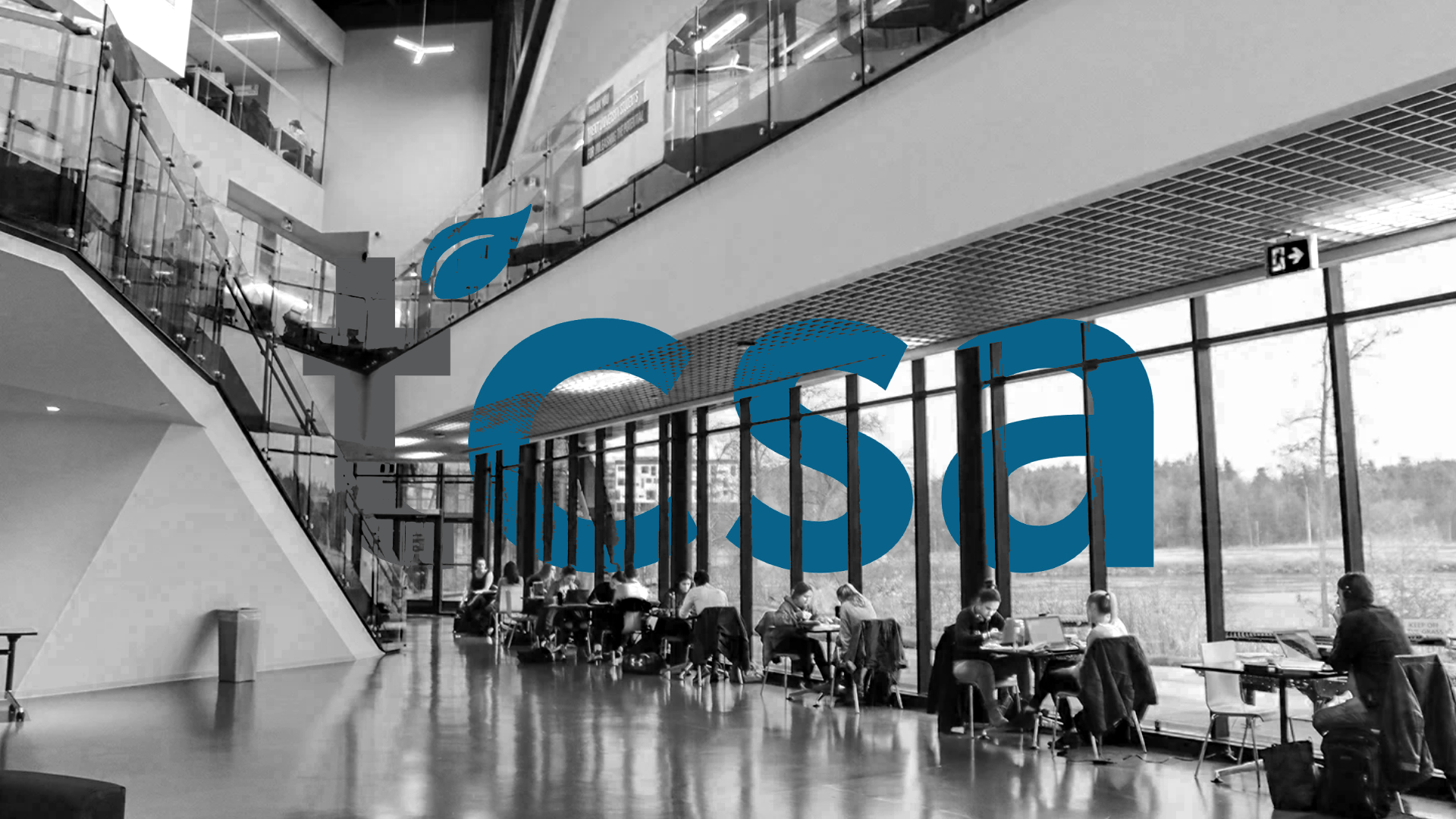

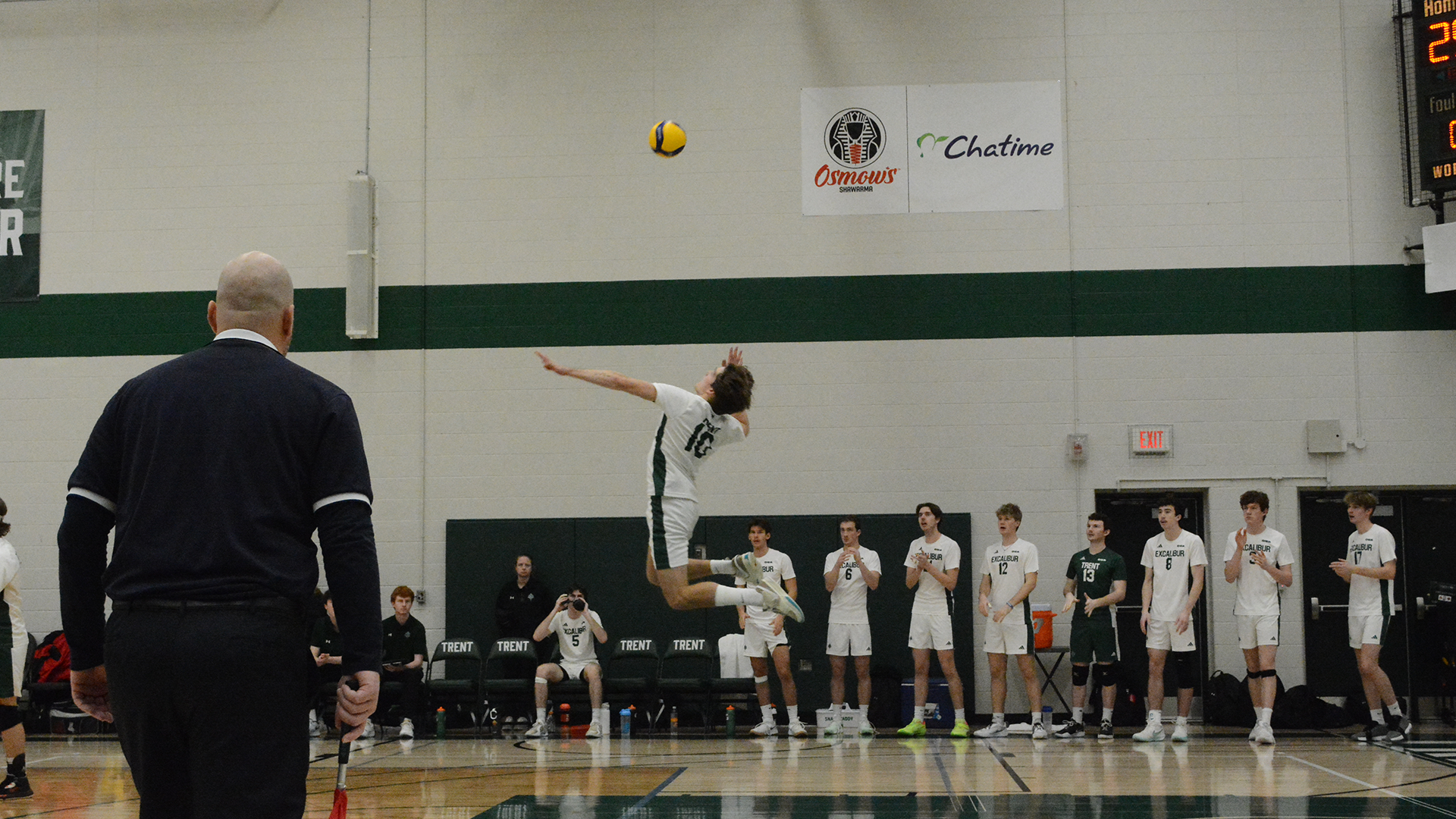
.jpg)
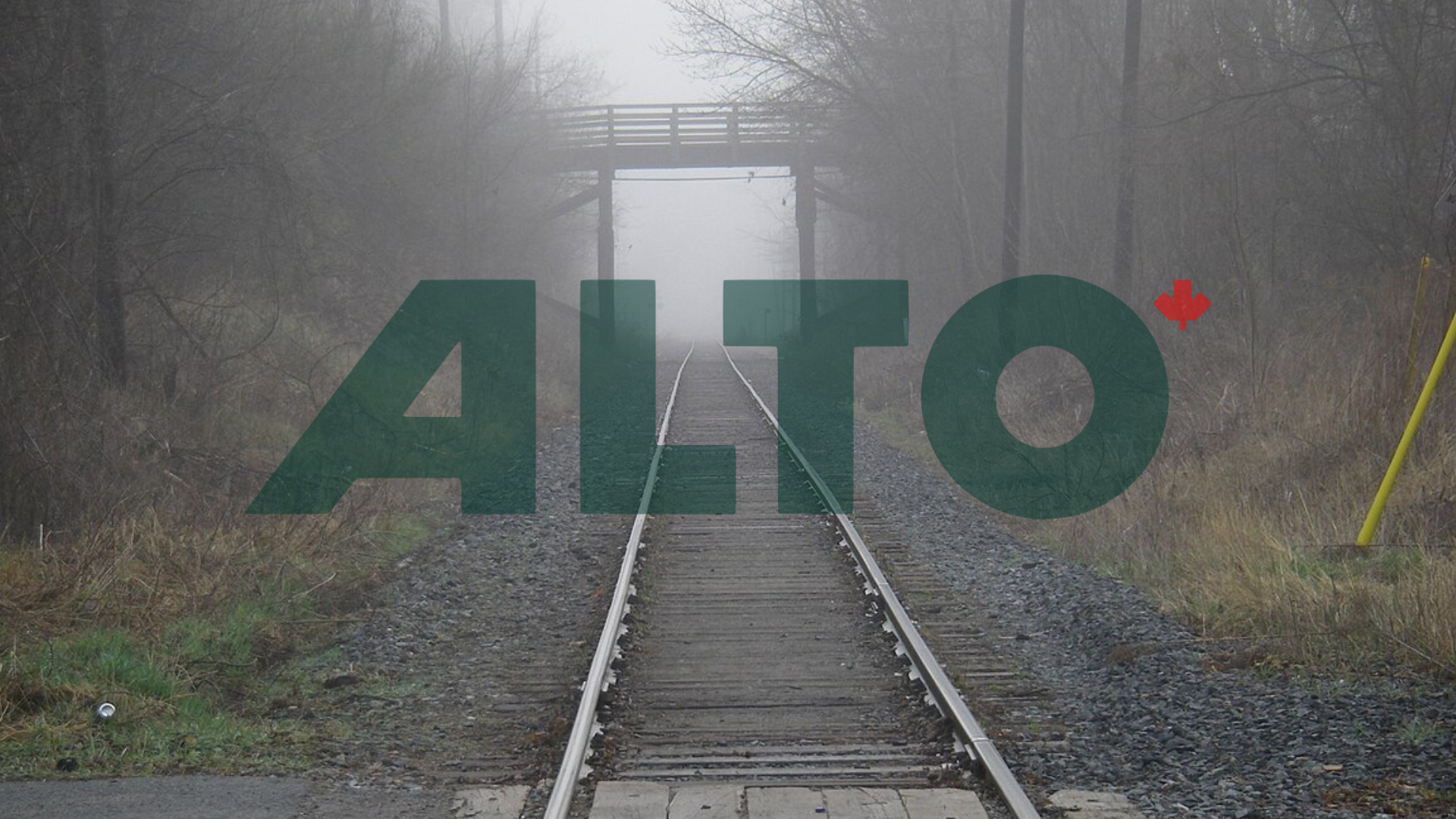

.png)